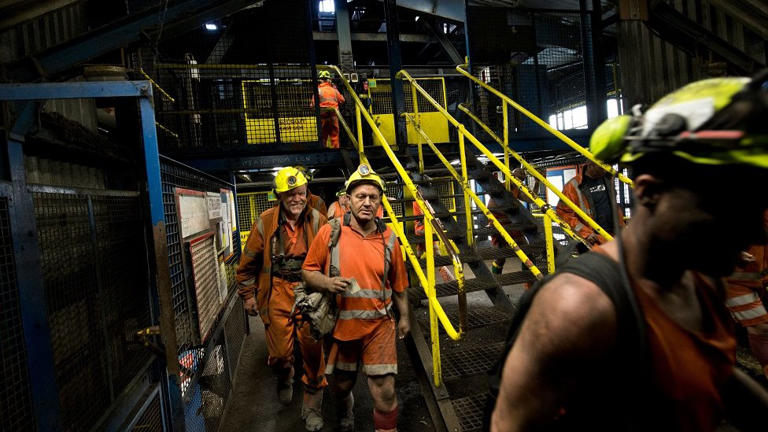The revelation that over £420 million from a pension scheme for mineworkers has flowed into the government’s coffers over the past three years has sparked controversy, with Labour criticizing the agreement signed three decades ago.
Under the terms of the agreement, the government is entitled to half of the surplus cash from the scheme, a deal struck between the then-Conservative government and the scheme’s trustees during the privatization of British Coal in 1994. This agreement was made in exchange for a government guarantee that the value of mineworkers’ pensions would not decrease.
Labour has condemned the arrangement as unfair to former miners and their families, with Shadow Minister Ed Miliband pledging to review the agreement if Labour wins power to ensure justice for miners.
The Mineworkers’ Pension Scheme primarily benefits tens of thousands of families, particularly in regions such as the East Midlands, Yorkshire, and the North East of England. Despite the government’s assertion that the agreement strikes a fair balance between scheme members and taxpayers, Labour argues that it fails to adequately protect the interests of mineworkers.
In response, a spokesperson from the Department for Energy Security and Net Zero emphasized the government’s commitment to safeguarding mineworkers’ pensions while maintaining a fair balance. They highlighted that scheme members have received payments 33% higher than they would have been due to the government’s guarantee, and bonuses have been issued to members during periods when the scheme has been in surplus. However, the ongoing debate underscores the complexities surrounding the management of pension schemes and the need to ensure equitable outcomes for all stakeholders involved.
‘Deep unfairness’
In April 2021, a cross-party committee of MPs urged the government to cease taking funds from the pension scheme and repay a portion of what it had already received. Despite these recommendations, the government has continued to receive annual payments of £142.4 million since then, as revealed through data obtained by the BBC under Freedom of Information laws. While many pension schemes are regulated by the Pensions Regulator, this particular agreement places sole responsibility on the government. Labour’s shadow energy security and net zero secretary, Ed Miliband, criticized the Conservative Party’s handling of the arrangement, describing it as “deeply unfair and unjust.” Miliband stated that a Labour government would conduct a comprehensive review of the arrangement to ensure miners receive their fair share of the funds. Energy minister Graham Stuart disclosed in December that the government had received £4.8 billion from the pension scheme since 1994.
The business and trade select committee, which issued the recommendations in April 2021, proposed that the government repay £1.2 billion of the funds it had previously received. The committee criticized the government for not conducting due diligence during the negotiation of the agreement, deeming it disproportionate. It suggested that the government refrain from withdrawing funds from the scheme unless it faced a deficit requiring public funds for support. The proposed changes were estimated to increase the average weekly pension by £14, which stood at £84 at the time.
Recently, the BBC reported on concerns that former coal-mining areas continue to lag behind the rest of Britain. A survey commissioned by the BBC revealed that nearly three-quarters of residents in former mining towns and villages felt there had been minimal or no progress in government efforts to address regional inequalities, four decades after the 1984 miners’ strike.
